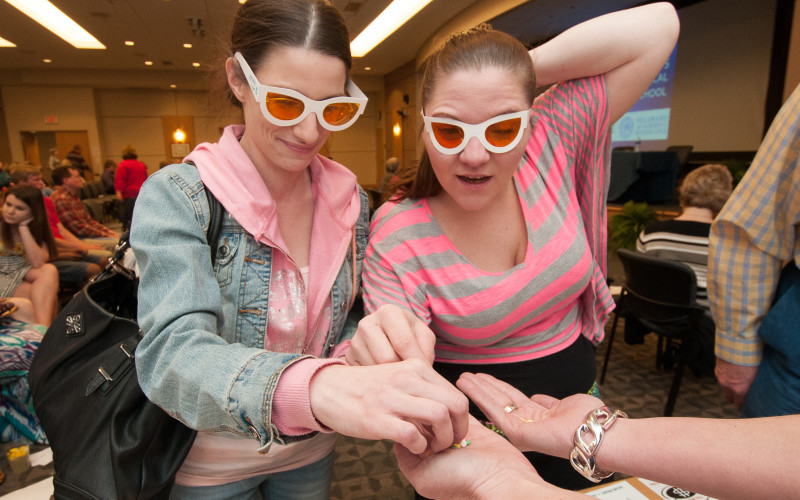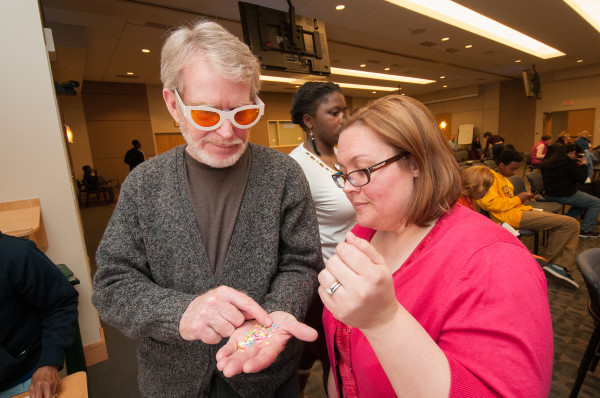Mini-Med School is a lesson in health literacy

After watching his parents grow old, Pete Zeigler of Newark wanted to learn more about the aging process.
He got a quick overview of the physical changes associated with getting older at this year’s Delaware Mini-Med School, a five-session program for people who want information on such topics as hypertension and lung cancer.
There is no tuition. No tests, no grades. Learners must attend all five lectures to earn a certificate of achievement. Now in its seventh year, Mini-Med is sponsored by Christiana Care and the Delaware Academy of Medicine/Delaware Public Health Association.
“I can trust that the information I get from these sessions is accurate,” Zeigler said. “I like that we can ask questions.”
At the event on April 2 at the John H. Ammon Medical Education Center, Zeigler and about 200 other learners listened to three experts from Christiana Care’s Center for Rehabilitation Services.

Topics included identifying physical and structural changes as we age that affect vision, cognition and the body’s musculo-skeletal system, as well as the risks associated with these changes and possible outcomes if they are not managed.
Becky Brockson, PT, a physical therapist, discussed good exercise habits, noting that a study found that people who walk on cobblestones have better balance and walk longer than people who don’t challenge themselves physically.
Heather Egnor, CCC-SLP, a speech pathologist, said that brains shrink as people age and that 20 percent of people over age 70 show mild cognitive impairment. She encouraged attendees to exercise their minds as well as their bodies.
“Thinking activities help to keep your brain strong,” she said.
Claudine Wujcik, OTR/L, an occupational therapist, focused on the impact aging has on vision.
“Hold up a finger and put it right in the center of your eye,” she said. “That is what a person with macular degeneration sees.”
To cope with failing vision, people can order checks with large print and ask their pharmacist to increase the type size on the labels on their medications.
She also suggested ways to keep eyes healthier, such as quitting smoking and wearing sunglasses with UV lenses.
To bring home the impact that vision has on safety, Wujcik invited learners to put on special glasses that reproduce such conditions as glaucoma and cataracts. Many had problems clearly identifying medications because the colors of the pills are difficult to determine for people with deteriorating vision.
Julliana Chen of Newark has been attending Mini-Med School for three years.
“I think it’s healthy to keep up with the latest in health care,” she says. “There is always something new to learn.”
Timothy Gibbs, MPH, executive director of the Academy of Medicine and Delaware Public Health Association, said Mini-Med School helps to advance health literacy.
“It benefits everyone from senior citizens to high-school learners who are interested in careers in medicine,” he said.